The fintech industry is transforming how people handle money, with fintech apps and digital payments solutions redefining convenience, speed, and security. Leading fintech companies like Razorpay, CRED, and PayPal have set benchmarks in online payment processing, digital payments platforms, and fintech app development.
From Razorpay payment gateway innovations to the seamless CRED app experience and PayPal online payment systems, these platforms lead the way. Yet, even the best fintech startups face testing hurdles. This blog explores how these giants overcome critical challenges, ensuring every online payment service is secure, reliable, and user-friendly.
💡 What’s next? Keep scrolling to find out
🚀 What Are Fintech Apps and How Do They Work?
🚀 Importance of Fintech Apps in the Digital Economy.
🚀 Overview of Razorpay, CRED, and PayPal: Leading fintech platforms
🚀 Key Testing Challenges Faced by Fintech Applications
🚀 How Razorpay, CRED, and PayPal Solve Testing Challenges?
What Are Fintech Apps and How Do They Work
Fintech apps are advanced digital platforms built by a fintech software development company to provide financial services through secure, scalable, and user-friendly technology. With expertise in fintech software development services, these applications have become essential for both individuals and businesses in the digital payments industry, enabling fast, transparent, and reliable transactions.
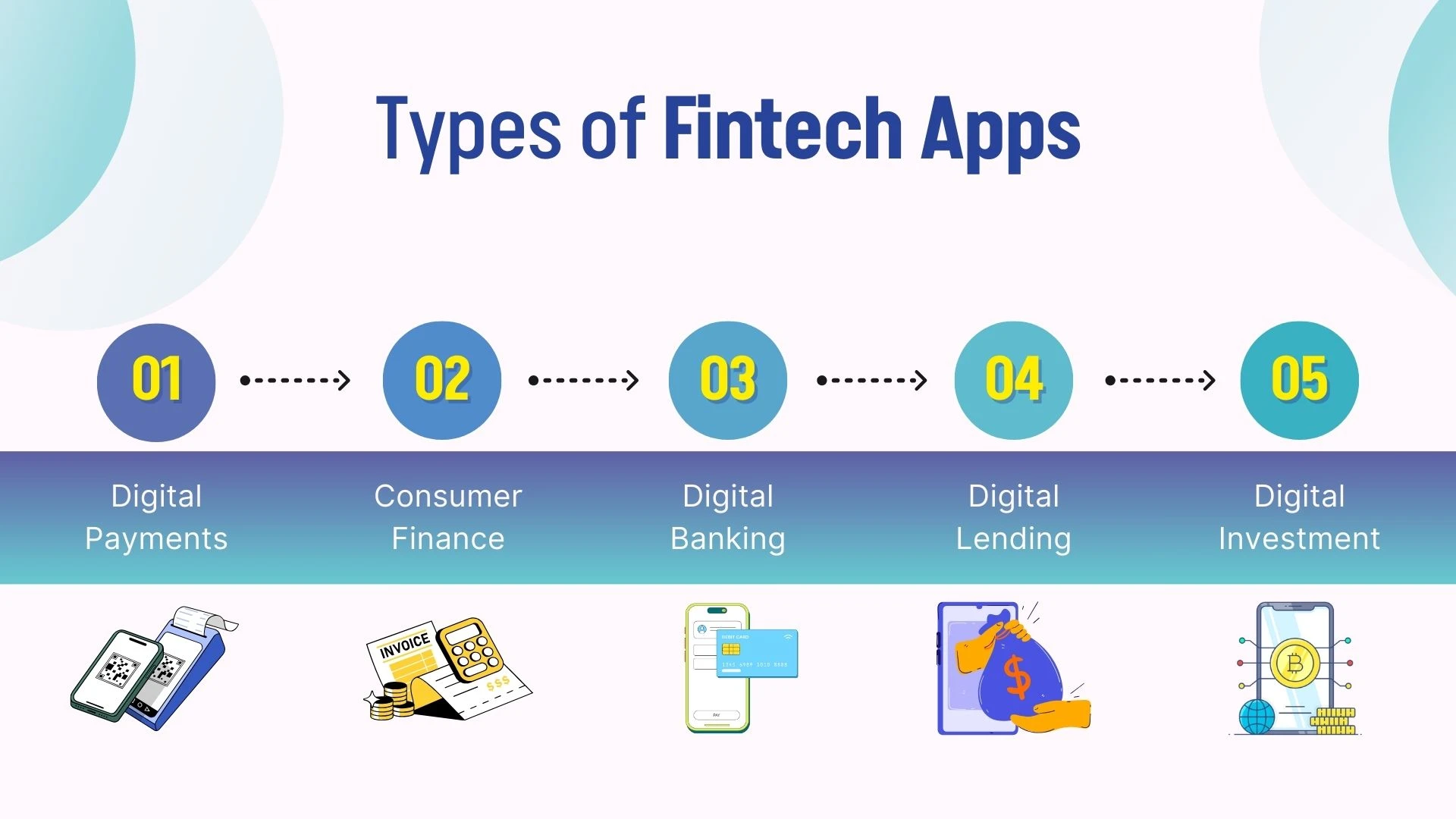
How Fintech Apps Work: Link
1. Safe Financial Data Access: Some fintech apps securely connect with bank accounts using APIs, enabling access to account balances, transactions, and other details. This ensures encrypted data sharing and prevents unauthorized access while linking multiple services.
2. Unified Wealth Management View: Wealth and financial management apps aggregate information from different accounts into a single dashboard. This helps users track spending, monitor investments, and receive tailored suggestions to improve financial health.
3. Instant Stock and Crypto Trading: Platforms like Robinhood and Coinbase allow users to trade stocks, cryptocurrencies, and other assets in real time. They simplify the investment process, offering speed, ease, and accessibility for all types of investors.
4. APIs for Secure Connectivity: Open banking APIs enable safe financial data sharing, fund transfers, and identity verification between institutions and fintech services. This “digital plumbing” powers mobile payments, account linking, and more.
5. Multi-Platform Accessibility: Most fintech companies offer mobile apps for instant access to funds and insights, while some also provide web-based platforms for performing the same actions via a browser.
Importance of Fintech Apps in the Digital Economy
Fintech apps have become a driving force in the fintech industry, enabling businesses and consumers to participate in the global digital economy with ease. By combining the expertise of a fintech company with secure online payment processing, these platforms support innovation, efficiency, and accessibility in financial transactions.
- Wider market access: Businesses use online payment services to sell products and services globally without the limitations of physical borders.
- Efficient transactions: IRS online payment and other government-linked platforms enable faster tax and fee payments, improving compliance.
- Business growth: Online payment systems empower startups and enterprises to reach customers across multiple channels and devices.
- Customer trust: Verified online payment apps increase user confidence through secure authentication and encryption.
- Digital inclusion: Affordable online payment solutions allow small businesses to join the digital payments ecosystem.
Overview of Razorpay, CRED, and PayPal as Leading Fintech Platforms
Razorpay, CRED, and PayPal stand out as some of the top fintech companies revolutionizing the digital payments platform landscape. Each platform offers unique features tailored to diverse financial needs, making them leaders in the fintech apps ecosystem.
- Razorpay payment gateway: Provides businesses with a robust and easy-to-integrate Razorpay API that supports multiple payment modes, enhancing online transaction experiences. The Razorpay login process ensures secure access for merchants and users.
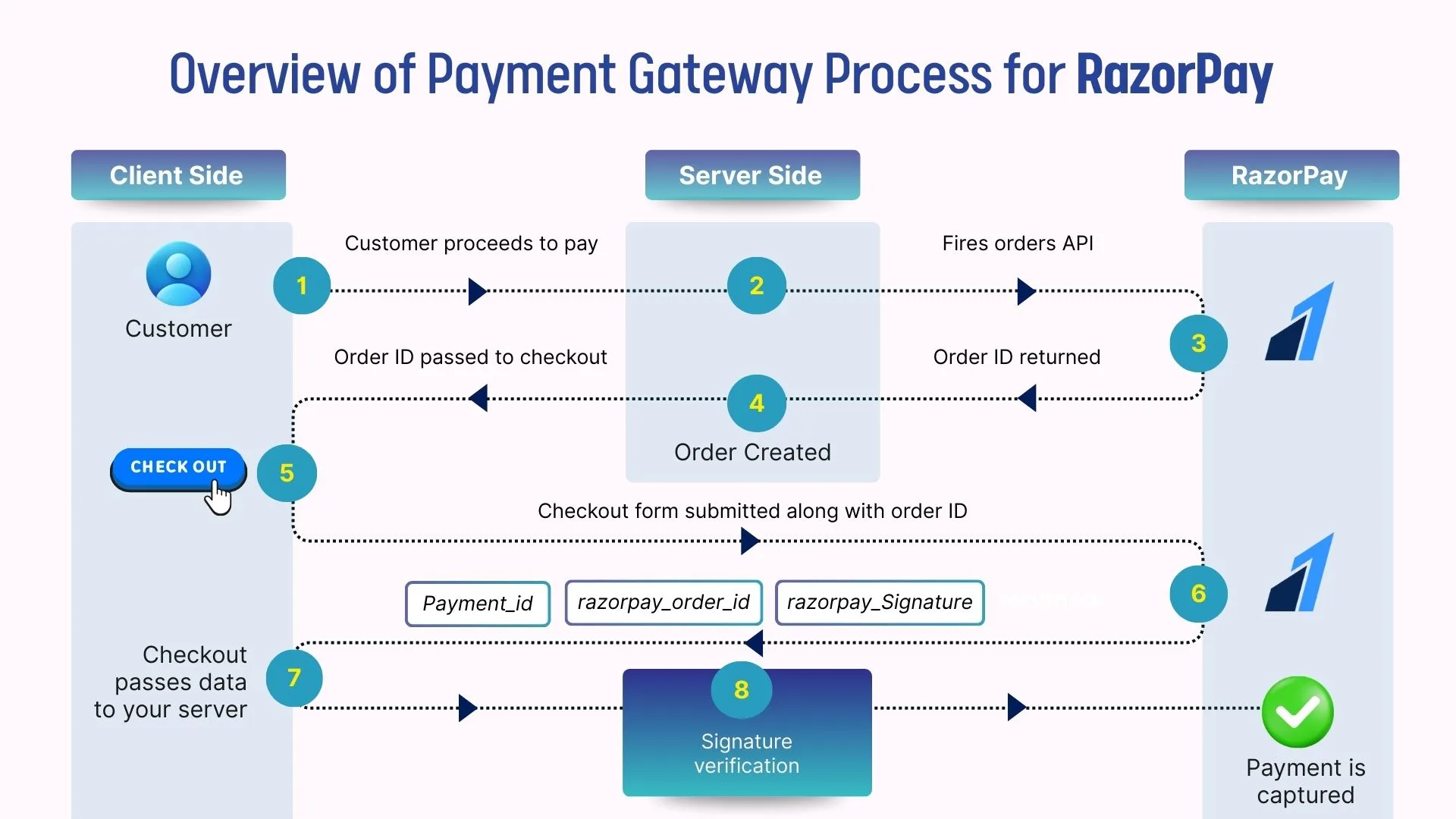
- CRED app: Focuses on rewarding creditworthy users by offering seamless credit management and payment services. It integrates with various online payment systems to streamline credit card bill payments.
- PayPal app and services: Globally recognized, PayPal enables users to send and receive money instantly. Features like PayPal credit, PayPal business accounts, and PayPal customer service ensure a comprehensive financial solution. Secure PayPal login and PayPal online payment options make it a preferred choice worldwide.
Key Testing Challenges Faced by Fintech Applications
Testing fintech applications involves navigating complex technical and regulatory landscapes. Ensuring security, seamless integrations, and reliable performance under high loads is critical to delivering trustworthy fintech apps that meet stringent compliance standards and user expectations.
Security vulnerabilities during transactions
Security remains the top priority when testing fintech apps, as any vulnerability during transactions can lead to data breaches and loss of customer trust. Fintech platforms must rigorously test their online payment processing and online payment systems to prevent unauthorized access and fraud.
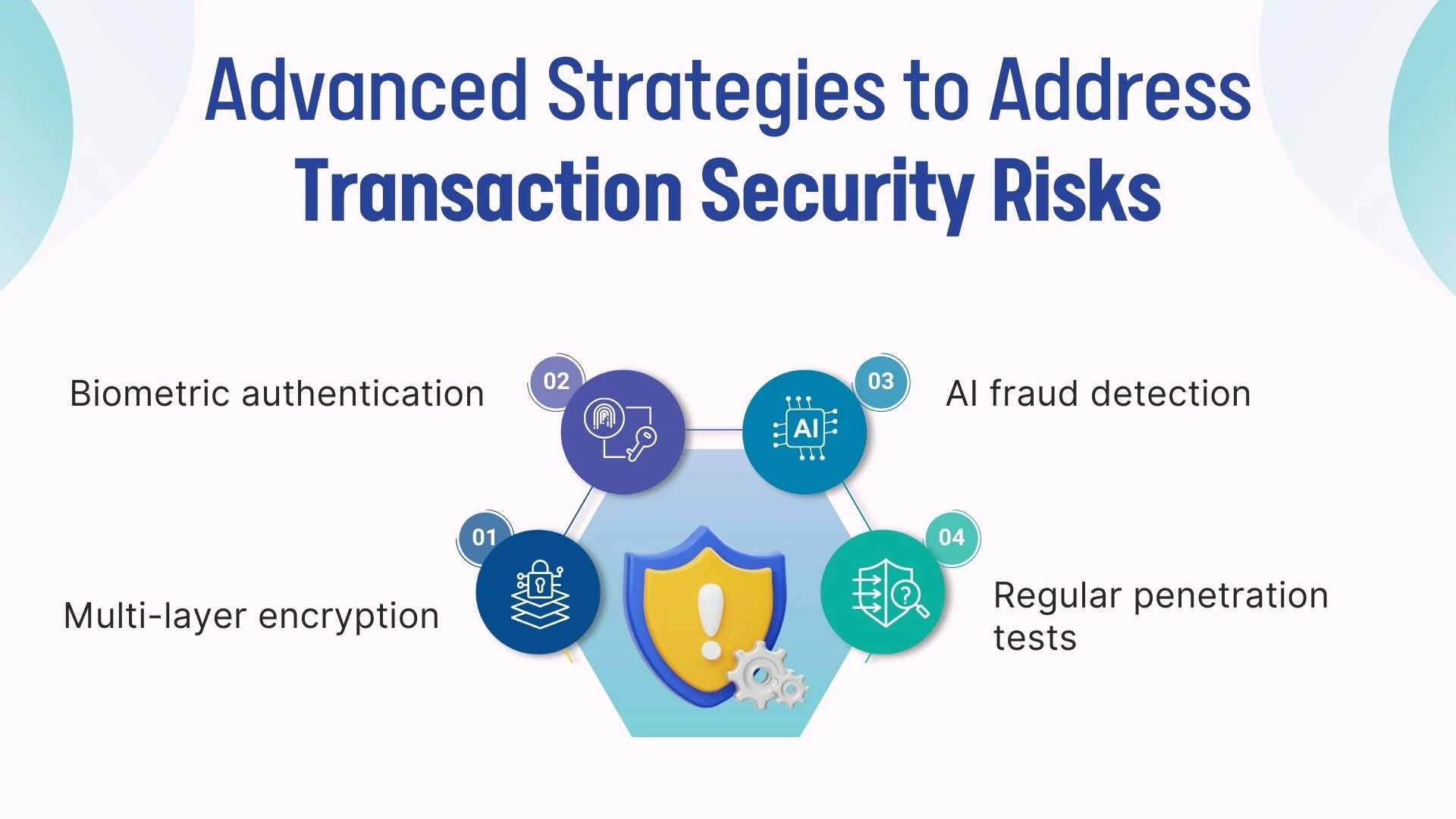
- Data encryption: Protects sensitive user information during online bill payment and other transactions.
- Authentication protocols: Strengthen login processes such as PayPal login and Razorpay login to verify user identity.
- Fraud detection: Monitors unusual activities in online payment apps to prevent financial losses.
- Compliance testing: Ensures adherence to industry standards in the digital payments industry.
Complex API and third-party integrations
Fintech apps rely heavily on complex API and third-party integrations to enable features like digital wallets, cross-border transactions, and support for alternative payment methods. Testing these integrations ensures smooth data flow, security, and reliable performance across platforms.
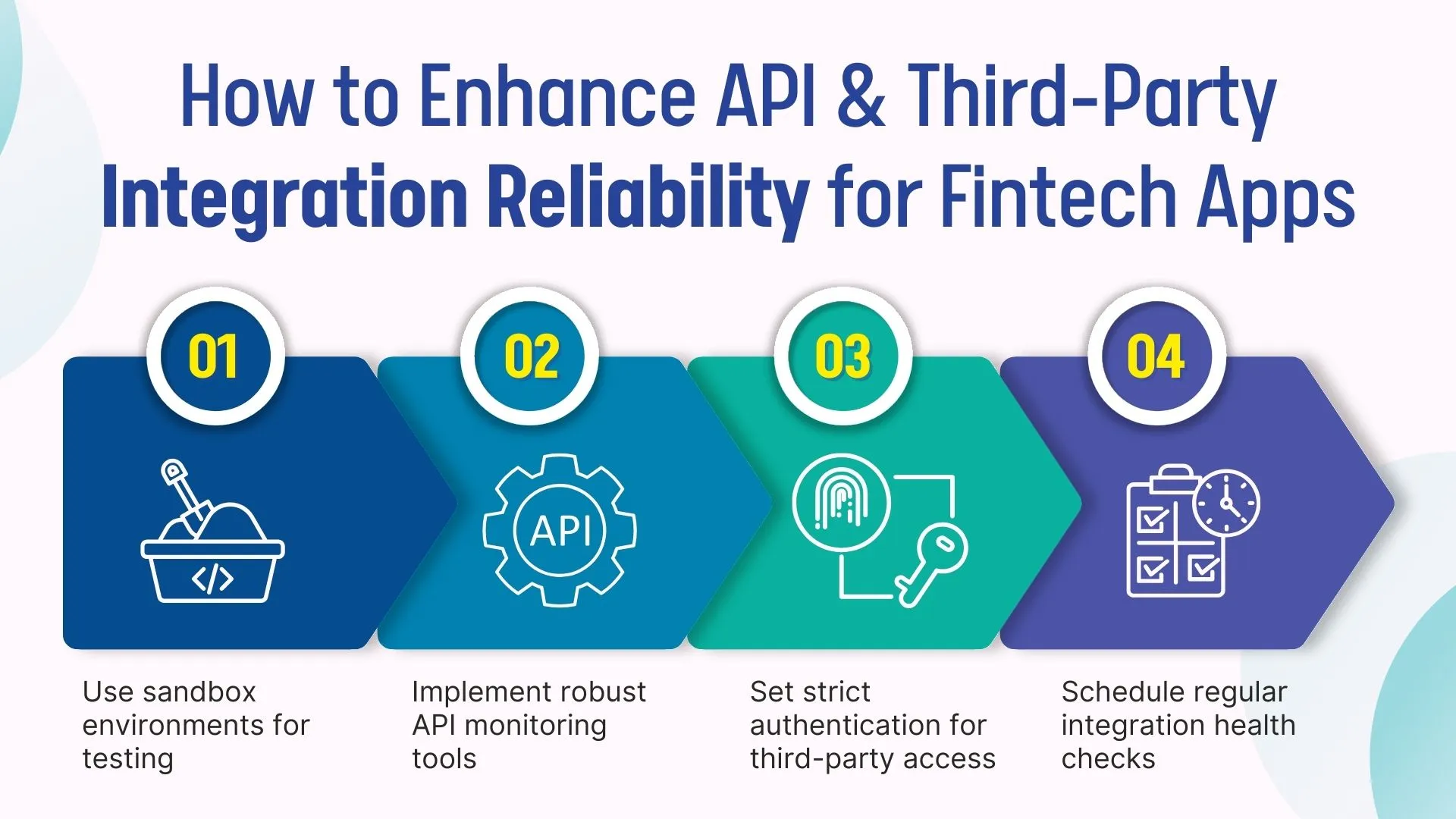
- API compatibility: Confirms seamless communication between payment processors like Razorpay API and platforms such as Google Pay.
- Fraud detection tools: Monitor transactions for friendly fraud and unauthorized transactions in real time.
- Security software: Implements protocols like 3D Secure to protect sensitive payment data.
- Dispute management: Supports efficient dispute resolution process and PayPal chargeback handling for enhanced customer trust.
High-volume performance and load testing
Handling high transaction volumes creates significant challenges for fintech apps, especially during peak usage. Performance and load testing must address these issues to ensure systems remain stable and responsive under stress.
- Scalability limits: Inadequate cloud-based processing can cause slowdowns or crashes during sudden spikes.
- Resource bottlenecks: Systems may face delays in processing invoice payments or real-time payment updates.
- Stress on security software: Increased load can expose weaknesses in fraud monitoring and security features.
- Data accuracy risks: High volume complicates maintaining precise transaction reports critical for dispute management and regulatory compliance.
Regulatory and compliance requirements
Regulatory and compliance demands pose complex challenges for fintech apps, requiring strict adherence to financial laws and standards. Testing must ensure that platforms meet these evolving requirements to avoid penalties and build customer trust.
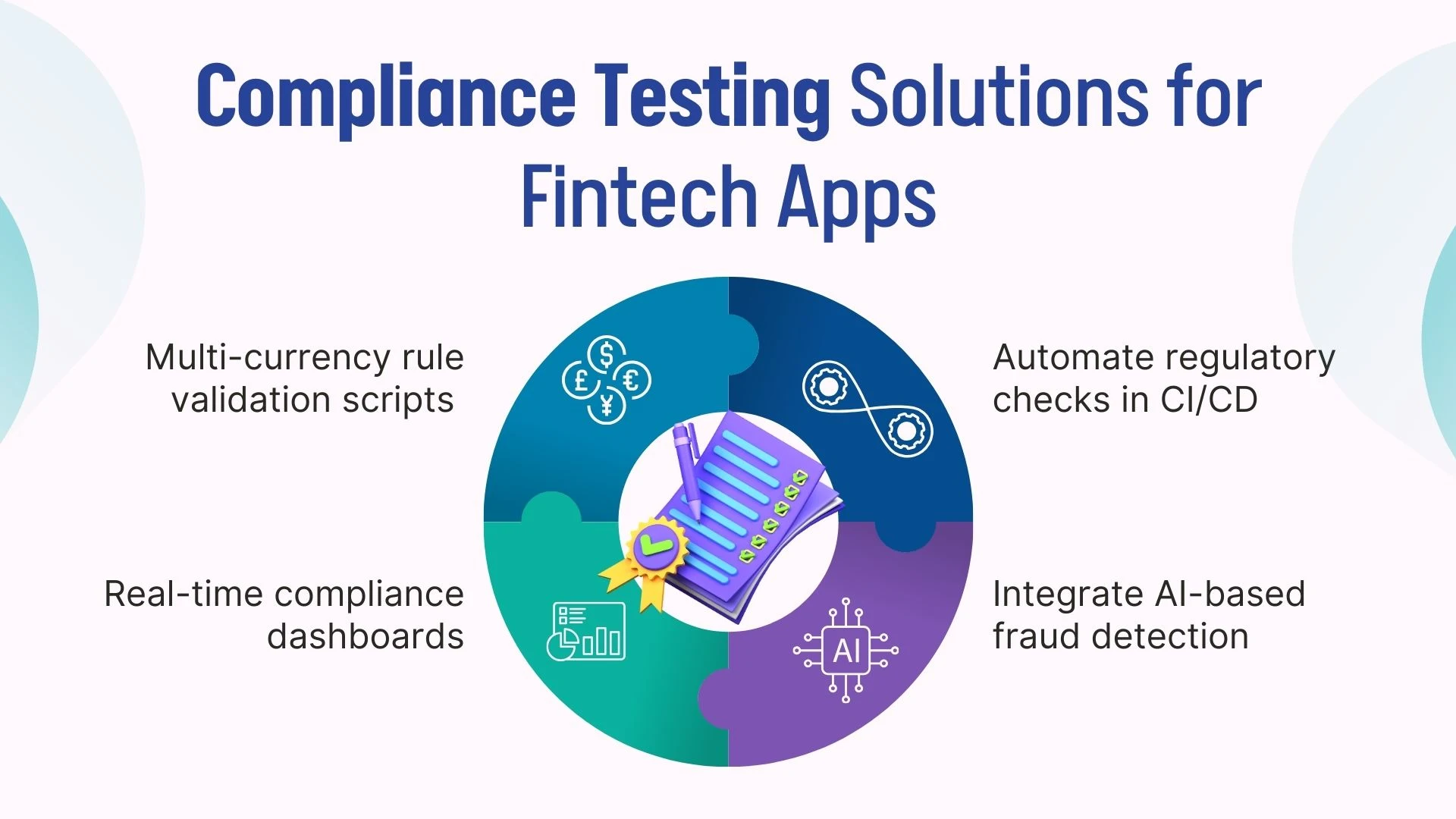
- Risk & Operations: Managing operational risks while aligning with regulations is crucial for maintaining service integrity.
- Seller Protection: Ensuring features comply with policies that protect merchants during dispute resolution processes.
- Multi-currency tools: Adhering to international financial regulations for cross-border transactions and currency conversions.
- Industry audits: Platforms undergo regular scrutiny to validate security and compliance in the digital payment platform ecosystem.
Cross-device and cross-platform testing issues
Testing fintech apps across multiple devices and platforms presents unique challenges that can impact user experience and security. Ensuring consistent functionality on different operating systems and devices is vital for widespread adoption.
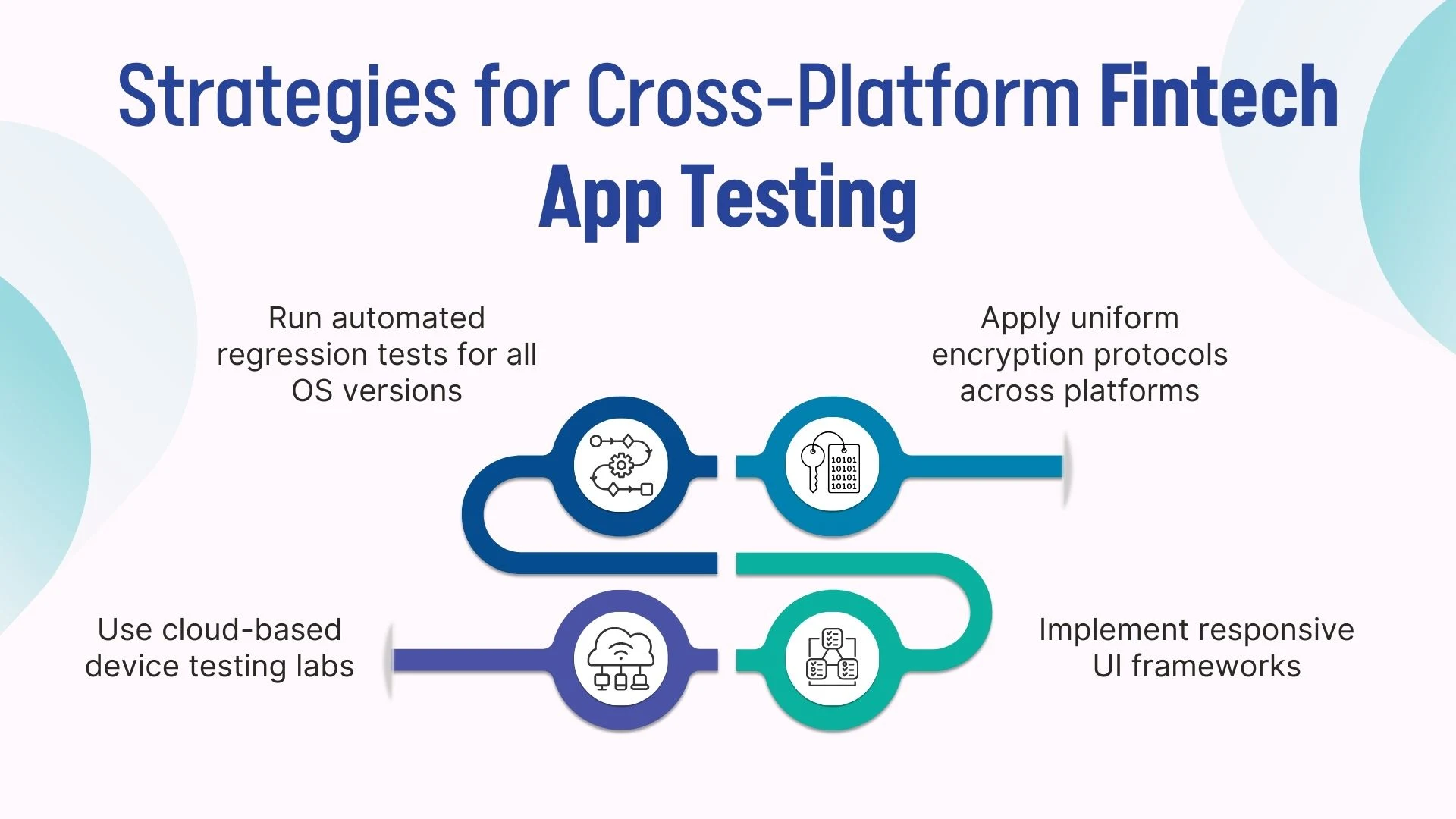
- Compatibility gaps: Variations in e-payment systems across smartphones, tablets, and desktops can cause inconsistent behavior.
- User interface issues: Different screen sizes and resolutions affect the display of online payment apps and digital wallets.
- Performance variance: Load times and responsiveness can differ between platforms, affecting customer support and satisfaction.
- Security risks: Discrepancies in security features may expose vulnerabilities on certain devices.
How Razorpay solves fintech testing problems?
Razorpay addresses fintech testing challenges by focusing on security, scalability, and user satisfaction to support a growing base of active users. Their business model emphasizes seamless payment experiences while managing transaction fees effectively to benefit both merchants and customers.
- Comprehensive Merchant Services: Razorpay’s platform undergoes thorough testing to ensure smooth credit card issue handling and reduce errors caused by human error.
- Automated system: It automates transaction validations, minimizing manual interventions and improving accuracy in transaction evidence collection.
- Regulatory challenges: Razorpay continuously updates its systems to comply with evolving regulations, ensuring legal adherence and reducing risk.
- Support for digital currencies: The platform is equipped to test and process digital currencies, preparing for future payment trends.
- Customer retention: By ensuring reliability through rigorous testing, Razorpay enhances trust and loyalty among users.
Testing strategies used by CRED to ensure quality
CRED focuses on delivering a flawless user experience by implementing comprehensive testing strategies that address fintech’s unique demands. Their emphasis on security, performance, and regulatory compliance helps maintain high standards for their growing user base.
- End-to-end testing: Covers all features of the CRED app, ensuring smooth operation across devices and platforms.
- Fraud monitoring: Utilizes advanced fraud detection tools to identify and prevent suspicious activities, protecting users from friendly fraud.
- Automated system checks: Streamline validation of transactions, reducing errors linked to human error in payment processing.
- Regulatory adherence: Continuous testing ensures the app meets evolving regulatory challenges in the fintech industry.
- Real-time transaction updates: Keeps users informed with accurate transaction reports, enhancing transparency and trust.
- Scalability tests: Prepare the platform for surges in active users and high transaction volumes.
PayPal’s approach to overcoming fintech challenges
PayPal tackles fintech challenges by combining robust security features with customer-centric services to support millions of users worldwide. Their focus on innovation and compliance ensures smooth, reliable transactions across various platforms.
- Dispute resolution process: PayPal’s efficient system handles PayPal chargebacks and protects both buyers and sellers through Seller Protection programs.
- Security features: The platform integrates 3D Secure and advanced fraud monitoring tools to prevent unauthorized transactions and reduce friendly fraud.
- Multi-currency tools: PayPal supports cross-border transactions and digital currencies, enabling seamless international payments.
- Automated system: Automated workflows help reduce human error and streamline invoice payments and transaction fees management.
- Customer support: PayPal offers dedicated customer service to assist with account issues, enhancing user satisfaction and customer retention.
Final Thoughts on Testing Fintech Apps Effectively
Fintech apps by Razorpay, CRED, and PayPal showcase how innovation meets reliability in the evolving digital payments landscape. Overcoming challenges like security vulnerabilities, complex integrations, and regulatory demands is essential to deliver seamless user experiences. As the fintech industry grows, continuous testing and adaptation remain key to maintaining trust and driving business model success. Embracing these strategies ensures these platforms stay ahead in a competitive digital payments industry.
This blog explored critical challenges fintech apps face, including security vulnerabilities, complex API integrations, high-volume load testing, regulatory compliance, and cross-platform issues. We examined how industry leaders Razorpay, CRED, and PayPal tackle these hurdles using advanced testing strategies and innovative solutions. Understanding these aspects highlights the importance of continuous improvement for fintech companies striving to deliver secure, efficient, and trusted digital payment experiences.
Leading fintech firms adopt testing strategies similar to those used by top software testing companies in Hyderabad and other software testing service providers. Leveraging tools like Selenium automation testing service and optimizing costs through solutions such as JMeter pricing and ReqTest pricing helps improve testing efficiency. Combining automated and manual testing approaches, as demonstrated by companies like frugaltesting.com, drives product quality and operational success vital for fintech growth.
People Also Ask
1. Why is latency a key concern in fintech app performance?
Latency impacts transaction speed and user experience, making real-time responsiveness crucial for trust and seamless digital payments.
2. What’s the difference between testing a fintech web app vs a mobile fintech app?
Web app testing focuses on browser compatibility and network conditions, while mobile testing emphasizes device diversity, OS versions, and app responsiveness.
3. What are the risks of poor encryption in fintech software?
Poor encryption can lead to data breaches, unauthorized access, and loss of customer trust, risking regulatory penalties and financial damage.
4. What role does automated testing play in fintech app development?
Automated testing speeds up validation of critical functions, ensures consistency, and helps quickly identify issues in complex fintech systems.
5. How often should regression testing be done in a fintech release cycle?
Regression testing should be performed before every release to ensure new changes don’t break existing functionality or compromise security.



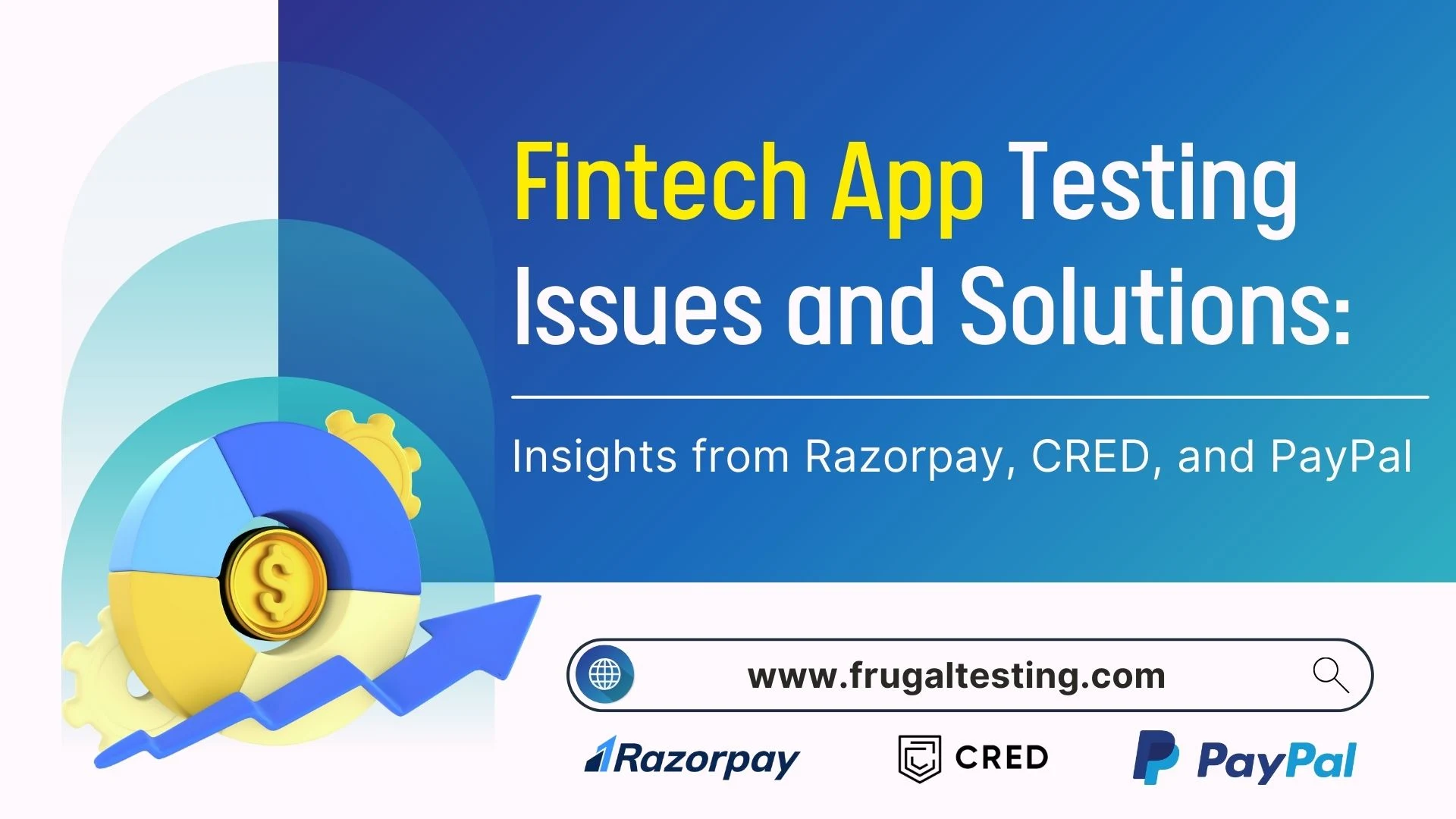

%201.webp)

